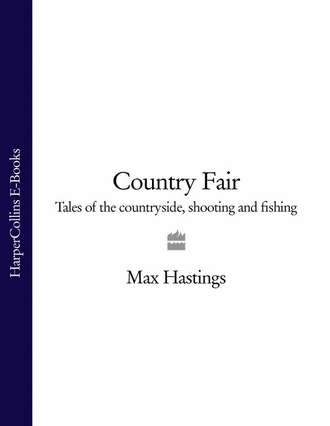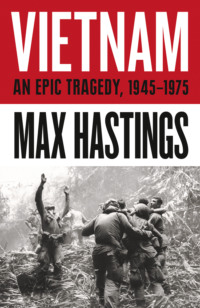
Полная версия
Country Fair
Thank God that these days we no longer have to make fuel briquettes out of coal dust and cement to heat the house, as some people did in 1951. I sympathise with the writer who lamented the miseries of driving a tractor in winter when cabs, heated or otherwise, were unheard of. Ploughing a furrow demanded a struggle with the elements almost as taxing as that involved in driving a horse team.
Constance Spry, who wrote a column on home entertaining, offered some tips for keeping food cool in a home without a frig (sic). She suggested hanging a damp cloth in the larder. Major Hugh Pollard contributed a recipe for cooking the harvest rabbit. Hugh, a notably eccentric friend of my father and author of that celebrated work A History of Firearms, was a keen cook in his leisure moments. In his youth after service in the First World War, he had seen action in Ireland as a Black and Tan. More dubious still, he and one of his daughters assisted General Franco’s secret passage from the Canaries to mainland Spain at the outset of that country’s civil war. As a child, I was impressed by the manner in which the Pollard house near Petworth was strewn with exotic weapons, invariably loaded.
Today, I fear, an unamused constabulary would remove Hugh’s Firearms Certificate in about five minutes, though most of the guns he kept about the house were not the kind for which one could have gained legal sanction even in those indulgent times. I was especially keen on his machine-pistols. Come to that, in Country Fair there is a set of photos of our family cottage, showing some of my father’s guns standing unlocked in a rack at the foot of the stairs. My oh my, as Mole might have said, how the world has changed!
Yet some things are exactly the same. Roy Beddington, the angling writer and artist, painted a picture of chalk stream fishing in father’s magazine which remains instantly recognisable to any of us: ‘July is the month of the evening rise,’ he observed. ‘It is no time for the bungler or the over-excited, but a time for circumspection.’ A host of new salmon flies has achieved primacy in our fishing lives since 1951, but the trout patterns which Beddington urged are the old faithfuls we still use today: Pale Wateries, Lunn’s Particulars, Red and Sherry spinners, Blue-Winged Olives, Silver Sedges. ‘It is time to make haste slowly,’ he wrote, ‘when every minute is precious, and every tangle and change of fly must be avoided.’ These are sensations every fisherman still knows intimately, even if other experiences of that era – rationing and National Service, disastrous floods in East Anglia and black-market petrol – are mercifully unknown.
One of Reginald Arkell’s verses decorated the pages of Country Fair that July of 1951:
The young men of the country
They hurry up to town.
In city ways they spend their days,
A-running up and down.
But the old men, the old men
Can plough a furrow straight,
In rain or shine, and still have time
To lean upon a gate.
Here, surely, is the greatest change since the days of father’s old magazine: the pace of life has quickened. One of my family used to assert years ago that I would never be a proper countryman, because I did not make time to hang about and gossip with people across the counter of the village shop, or when passing them in the lanes. Those strictures were just. They apply to many others of a new generation who live in rural places. Even the ploughman whom Arkell celebrated above now has a computerised schedule to meet. We inhabit a far more comfortable rural world than our parents knew, in the days when even the grandest houses were underheated and hot water was a luxury. But our own era is a hastier one. Few people now dare admit to enjoying leisure to lean upon a gate. If they did so, an agent of the Health & Safety Executive would likely leap from behind a bush, pointing out the risk that it might fall on their toes and provoke litigation.
2 Rhythm of the Seasons
JUST AS SWALLOWS wake up one morning and think: ‘Gosh, I ought to be migrating,’ so sportsmen sniff the late-summer air and reflect that it is time to get the gun out, maybe shoot a few clays, think about grouse if they are very lucky, or maybe the first partridges, wishing that they were wild greys. There is a rhythm about the sporting year, of which most of us become more conscious with each season of experience. This need not mean that one must be impatient for things to happen (though I have known fox-hunters who became catatonic between April and August). Rather, there is a sense of rightness about the moment when each phase of the cycle begins.
I do not think about fishing through the winter and early-spring months, nor even glance at my rods. In March and April, every spare moment is devoted to the garden. I do my best to get the borders into parade order before the river beckons, never entirely successfully. There is little temptation to fantasise about fishing when there is a nasty cold wind that must blow any fly, as well as any fisherman, off the water. Then comes a May morning when the breeze drops, spring sun warms the earth, and every instinct tells one to toss the net and bag into the back of the car, and nip down to the river. Its time has come, albeit usually a trifle late.
Much the same applies to salmon-fishing. A route to madness lies in brooding all summer about what may or may not be happening to familiar rivers when one is not oneself casting on them. I reach for my ear defenders when anyone rushes up at a party intending to describe record catches – or, for that matter, no catches at all – on the very beat one is due to visit a fortnight hence. Likewise, I have abandoned an old habit of checking the weather on a given river day by day through the week before visiting it. What happens to Jack Smith on Thursday or Friday has absolutely no bearing upon what will happen to you or me the following Monday or Tuesday. As flies to wanton boys are we to the gods, and all that. Better just to turn up on the bank when the time comes, willing, eager and oblivious of recent history.
You will not be surprised to hear me confess, of course, that it has taken fifty-nine years to become this phlegmatic creature. Patience is much easier when one enjoys many other things in life as well as sport. In my twenties I was obsessed to an unhealthy degree with shooting and fishing. These things meant more to me than anything else. I did not get many chances, and consoled myself by falling asleep every night reading about other people’s sporting doings in country books and magazines. In the unlikely event that I had been given a choice between driven pheasant-shooting and a date with Diana Rigg, it would have been a tough call.
These days, like many sportsmen I find that the prospect which stirs most vivid excitement is the chance of a grouse. There is absolutely nothing which I would not cancel – weddings, funerals, christenings – to enjoy the privilege of missing those sublime birds. And even with grouse, I have trained myself not to think about them until a magical day in August, when one glances at the calendar and says, with studied carelessness: ‘Oh well, better get ready. Yorkshire tomorrow.’
It is fortunate that grouse do not become operational until the garden is way over the top, the sweet peas hang limp and yellow, it is past time to spray the roses, and in the kitchen garden only runner beans will notice that one is away. My father believed that matters were divinely arranged so that grouse and partridges could be eaten with the last of those same beans, but this represented a touch of blasphemy on his part. What is true, I think, is that there comes a moment when we have had enough of the fag-end of summer, and embrace the coming of autumn: a new season, and in many respects the most pleasing. Summers sometimes disappoint; autumns seldom do. The first ground frosts feel absolutely right as one stands waiting for partridges – or, in a perfect world, casting across Tweed in October or November. We might, however, offer a petition to the Almighty to stop autumn gales blowing leaves all over the river while one is trying to cast a fly. It is enough to turn anyone into an atheist, when the British seasons start overdoing things in the fashion they have affected lately. Two years ago we could not even fish Tweed in mid-October, because the river was at a June drought level.
The pheasants that clatter aloft unscathed at the end of an October partridge drive, taking flying lessons for November, offer promise of good things to come. Yet pheasant-shooting has suffered more than any other field sport from upheavals in the climate. At midwinter we want to shoot on cold, crisp days with a hard frost and maybe even a little snow. That is what our forefathers did. They wrote reams of doggerel extolling the beauties of Christmas cock pheasants paddling about in the drifts.
Today, instead, we find ourselves turning out again and again on mild, soggy days when nobody, including the birds, really wants to do it. The abolition of our traditional winter, especially in the south of England, is a blow to field sports. There seems little chance that God will change his mind and restore the old weather pattern – indeed, if anything, matters will become more difficult as the effects of global warming become ever more apparent. The best we can hope for, these days, is a few sharp, chilly days in January, towards the back end. I don’t know about you, but I have had enough by then. I feel ready to stop, flee from England for a while, then turn to the garden again. I never sob for anything lost on the first of February. I am merely boundlessly grateful for the fun I have had, and happy to wait for it all to start again with the trout in late spring. ‘To every thing there is a season,’ wrote the sage in Ecclesiastes, ‘and a time to every purpose under the heaven.’ The old boy never said a truer word.
3 The River Keeper
THE GREAT Richard Walker once suggested dismissively that ‘The most difficult thing about dry fly-fishing is to find somewhere to practise it.’ He seems right up to a point. Now that so few of even the great south of England chalk streams offer truly wild fish, the art of the dry fly is diminished from the days Skues and Dunne knew. Yet for many of us, there remains a magic about fishing a river which is absent from still waters, save perhaps those of Scotland and Ireland. It seems worth every penny of the alarming cheques one must write, to savour the joy of casting beneath willows and among the rushes for a chalk stream trout. I would pay at least half the money each year merely for the privilege of walking the banks without a rod, watching the fish and the wildlife in summer. Even many professionals, I think, are drawn to a career in a fishery for the same reason.
The man who influences my own happiness on dry fly water more than any other lives in a modest cottage maybe half a mile from my own home, and a long cast from the river where he plies his trade – no, surely we should call it a profession. My daughter remarked the other day that she reckons only one in ten of the people she knows have jobs which they enjoy. This seems a fair guess. It does not represent mere sentiment to suggest that the career contentment quotient is higher in the country than in town. Those fortunate enough to forge a lifestyle working with nature are more likely to achieve happiness than people who merely massage money through their working days.
Our local river keeper, Stephen Jones on the Kennet at Chilton Foliat, seems one of the most fulfilled men I have ever met. Everybody who meets Stephen goes away muttering that he ought to be chairman of Microsoft or suchlike. He is forty-six, bright, decisive and fluent. But no, all his life he has wanted only to be a river keeper. This is fortunate for those of us who fish with him, because he is very good at it. And maybe it is also lucky for him. Here is a man who knows exactly what he wants, and knows that he has got it. He grew up in Southampton, where his father worked in a bank. It remains a mystery whence sprang his enthusiasm for running streams. The family used to visit the New Forest a lot, and as a teenager Stephen did some pretty unsuccessful fishing on the public water of the Itchen estuary. But somehow the idea of working on a river got into his head, and stayed there. His father always said: ‘Make sure you get a job you enjoy.’
A family farming friend mentioned that Sparsholt College was starting a fishery management course. Stephen enrolled for it. Meanwhile, at sixteen, when he left school – ‘They didn’t think I was the sharpest knife in the box’ – he spent a year’s apprenticeship on the Test at Broadlands. There, he says wryly, ‘Working among men I did a lot of growing up very quickly.’ After college he spent three years at Packington Fishery in Warwickshire, which he enjoyed but found very commercial: ‘Rods really wanted their pound of flesh.’ Then as now, he himself fished very little. Like gamekeepers who scarcely trouble to shoot, Stephen is a typical river keeper in that he gains his pleasure from living with the water, and from watching others cast. He is a good entomologist, but learned about insects from watching fly on the water, rather than from books. He knows his birds, is less confident with plants, ‘But I’m still learning.’
He came to the Kennet in 1982, at a time when the Chilton Fishery was in poor health, after years in thrall to a Thames Conservancy policy designed to speed flow and improve field drainage for the only rural activity that seemed to matter in those days – growing corn. The estate syndicate could not sell all its rods, and was losing money. Stephen worked at increasing weed growth, putting bends back into the stream. He started rearing his own trout for stocking at the end of the season, ‘Which is a big plus at the beginning of the next one, because you don’t have a river full of gullible fish.’
Today, there is a long waiting list for rods, and Chilton is famously one of the prettiest stretches on the river. Stephen loves the variety of the fishing: ‘Because the main river and the carriers are so different, there’s always somewhere to get out of the wind, always somewhere to find a bit of shade, always somewhere you can get away on your own.’ His own summer day starts at seven when he feeds the fish, walks the dogs and checks his fenn traps – he catches half a dozen mink a year. There are new rods to be shown around, and duffers like me who always need advice on flies. Towards evening there are also occasional poachers, ‘white van men’, usually in their early twenties, never alone, often plying a handline which they can drop in the water if they are spotted, to remove the evidence. They are the reasons for Tiger and Lizzie, Stephen’s German shepherds, without which experience has warned him not to try consequences with intruders. He seldom bothers to call the police, because they come so slowly.
He says that his real pleasure in the job, beyond the beauty of the place, is meeting people. ‘There used to be three old boys who came every Tuesday – a High Court judge, a former Hong Kong governor who’d been in Changi Jail, and a survivor of the sinking of the Repulse. I’d see them every lunchtime, and we’d sit down for a chat. They weren’t boasting at all, but when you listened to those men and thought about what they’d seen and done…’
In summer, Stephen is a keen bowler for a local village cricket team. When there is no fishing in the winter, he loads and beats a bit. Out of season, he and his wife Fiona also travel, usually somewhere exotic. Two years ago it was Namibia, last time California. Fiona is Australian, from a country district a few hours outside Melbourne. They have been married for ten years, and she is a successful executive with Vodafone. Stephen is full of admiration for her swift rise: ‘She’s clever and she’s Australian, which means she’ll always say, “Let’s give it a go!” We don’t do that here, do we?’
I asked Stephen about the common mistakes he sees fishermen make. ‘They don’t look enough. They’ll cast to a fish without noticing there’s another one in between. Some people think that to be fishing, you’ve always got to be plying a rod. Time spent looking before you do anything is the trick. It’s always a mistake to move too quickly, to rush around the river.’ Does he never get restless? ‘Never yet. I’ve not seen anywhere the grass is greener. Maybe towards the end of a season I might start to get a bit weary, then I see a rod coming down here for the first time, really excited about fishing. There are two Americans who cross the Atlantic every year, just to fish here. I think to myself: they’re willing to come all that way, to be on this water. And I feel proud.’
His big beef, inevitably, is water abstraction. He fumes that the level of water which can be stolen upriver is assessed on the basis of the last calendar year, which means that 2003, for instance, was identified as wet because of what happened in January and February, despite the endless dry months that followed. In 2004, by early spring the river was at a June level, and matters have been worse in 2005. Yet Swindon was permitted to divert even more water than it was taking already – and none of this returned to the Kennet. Here is a sad and familiar story throughout the south of England, a grave threat to the future of our chalk streams. Whitehall planners continue to approve massive housing developments, heedless of how much water our modest river systems can spare for diversion to ever-growing conurbations. If the countryside of southern England loses its rivers – and several are desperately depleted – then a vital artery of rural life will be severed.
I suggested to Stephen that almost all the mistakes people make in life are things they miss out on, not things they do. He nodded. ‘There was this chap who had a rod here – very successful businessman. In five years, he never got to the river once. He was just too busy. Now’s he’s dead. It seems such a waste, not to have done something you really like doing.’ For himself, he says unhesitatingly that he has the life of his choice. He revels in feeling master of his own destiny: ‘This is good. The world comes to you, rather than you having to go to it.’ And those of us who fish with Stephen feel lucky that we should have the privilege of his company and his wisdom for many seasons yet.
4 Sunshine and Showers
EVERY REAL HUNTER, shooter and fisher accepts the weather as part of the game of chance that makes up sport. If we get soaked walking hedges in pursuit of a pheasant, the experience doubles the pleasure of lying in a bath afterwards with a whisky and a book. If our rivers and lakes were forever in perfect order, where would be the thrill and surprise about hooking a trout or salmon? G.E.M. Skues wrote a salutary short story about a man who died and found himself on a river where the fish were rising continuously. He thought he was in heaven, netting trout after perfect trout, until he grew to understand that this was an exquisite form of torture devised for the other place. Most of us practise field sports because we love to commune with wild things in wild places. The whimsy of the British weather is inseparable from the experience. Shooting high pheasants in a gale is difficult, because the target is usually travelling in two directions at once, but the thrill is doubled if you hit one of these superbirds.
The elements influence fishing even more decisively. William Blake observed wryly: ‘The weather for catching fish is that weather, and no other, in which fish are caught.’ One July Monday, I found myself plying a small double across a Scottish salmon river. The gillie frowned gloomily and observed: ‘It’s a fortnight since we had rain. We need the water up a couple of inches.’ On Tuesday a fierce upstream wind made casting difficult even for experts. The gillie shook his head: ‘The two best fishers I know go to sleep on the bank when there’s an upstream wind.’ On Wednesday, heavy thunderstorms stirred the current into cold chocolate soup: ‘It should be great tomorrow if the rain stops and the river starts falling,’ said the gillie in real excitement. The river rose a trifle on Thursday. On Friday, at last it was steady, though highly coloured. We caught some fish on big, bright flies, and thought eagerly of Saturday, when we would have the best beat on the river. But next morning there was more rain and more colour. We landed the odd salmon, but never reaped the sort of grand harvest that on Monday we had been sure must come.
Now, do not interpret this as a fisherman’s whinge. We enjoyed a wonderful week on wonderful water and caught a respectable number of fish. I am simply making the point that ours was the sort of climatic experience every angler knows. Only once or twice in a lifetime do most of us get the chance to fish through several successive days of weather when fish and gauge marry, to yield a bonanza.
Shooting is a bit more reliable, but not much. About one day in three, conditions are the way we want them. The wind is blowing in the right direction, rain is holding off, the sun is not too bright. By contrast, there are those mornings in August when the sun is blazing magnificently, making it a pleasure to walk the hill, but young grouse receive no help from a breeze to lift them forward. After being flushed for the first time, they drop exhausted into the heather well in front of the butts, and refuse to get up again. September and October grouse are stronger and much more challenging, but by then the threat of mist or rain is never far distant. Few sporting experiences match the misery of receiving a priceless invitation to shoot grouse, then spending two days at the foot of the hill waiting for a ‘clag’ to lift.
Come pheasant-time, most of us reckon that a perfect December or January outing means an overcast day with some wind, when in Patrick Chalmers’ phrase ‘the snow-powdered stubble rings hard to the tread’. Yet a white landscape looks more romantic to guns than to keeper and beaters. It is a tough challenge, to persuade birds to leave patches of snow-covered brambles, to keep a beating line tramping a wood in which white lumps of wetness are flopping off the branches onto every beater’s neck. On such days, the sight of dead pheasants precipitates in some of us a spasm of squeamishness. There is a pathos about a bird lying limp amid a cluster of feathers and pink spots of blood on the snow, which seldom troubles the senses in other conditions.
Yet in modern British winters, rather than snow we are likely to get mild, muddy, still, sunny days on which birds drift low over the guns with wings set, or others when torrential rain causes the water to run in streams down the barrel rib. Few of us can fib convincingly enough to make ourselves believe that we like competing in such conditions, when the stock of the gun is slipping in the hand and we are struggling to see coveys or flushes through the squalls. Gene Kelly may have enjoyed singing in the rain, but how many of us, deep down, like shooting in it? On a Saturday morning not long back, the phone rang in Hastings Towers at 8 a.m. Glancing out of the window at a torrential downpour, with more of the same promised all day, I experienced a surge of hope that my pheasant host was ringing to cancel. Not a chance, of course. Already some guns had been in their cars for half an hour, while beaters and pickers-up were congregating from all over the region. Shooting dates are fixed six or nine months before they take place. Not even a death in the family is likely to change them.
About here, hardy veterans of the Norfolk coast, the Northumbrian hills, the Cornish valleys, start muttering to each other: ‘Not much of a sportsman this chap Hastings, is he? Doesn’t like getting his feet wet!’ Yet my purpose in these jottings is sometimes to suggest sentiments which lots of people secretly share, but don’t like to admit. Of course we are all out there doing our thing, even when cats and dogs are plummeting down. But most of us, in such circumstances, wish we were at home in front of the fire. The only case for shooting in the rain is that, like looking at other people’s holiday snaps, it is so wonderful when it is over.







